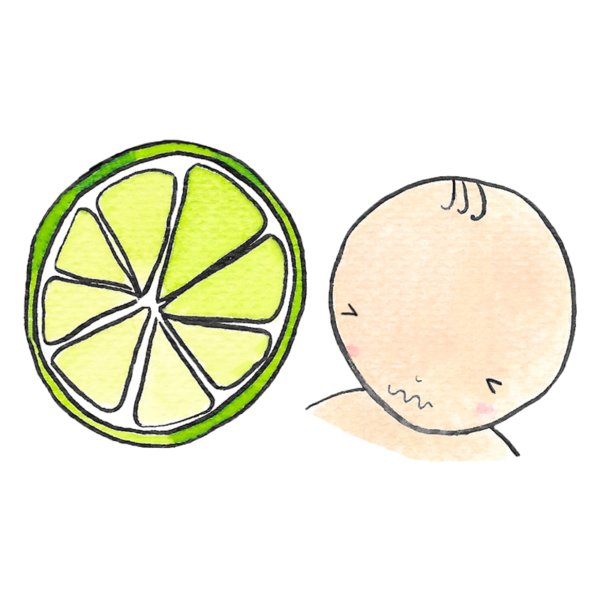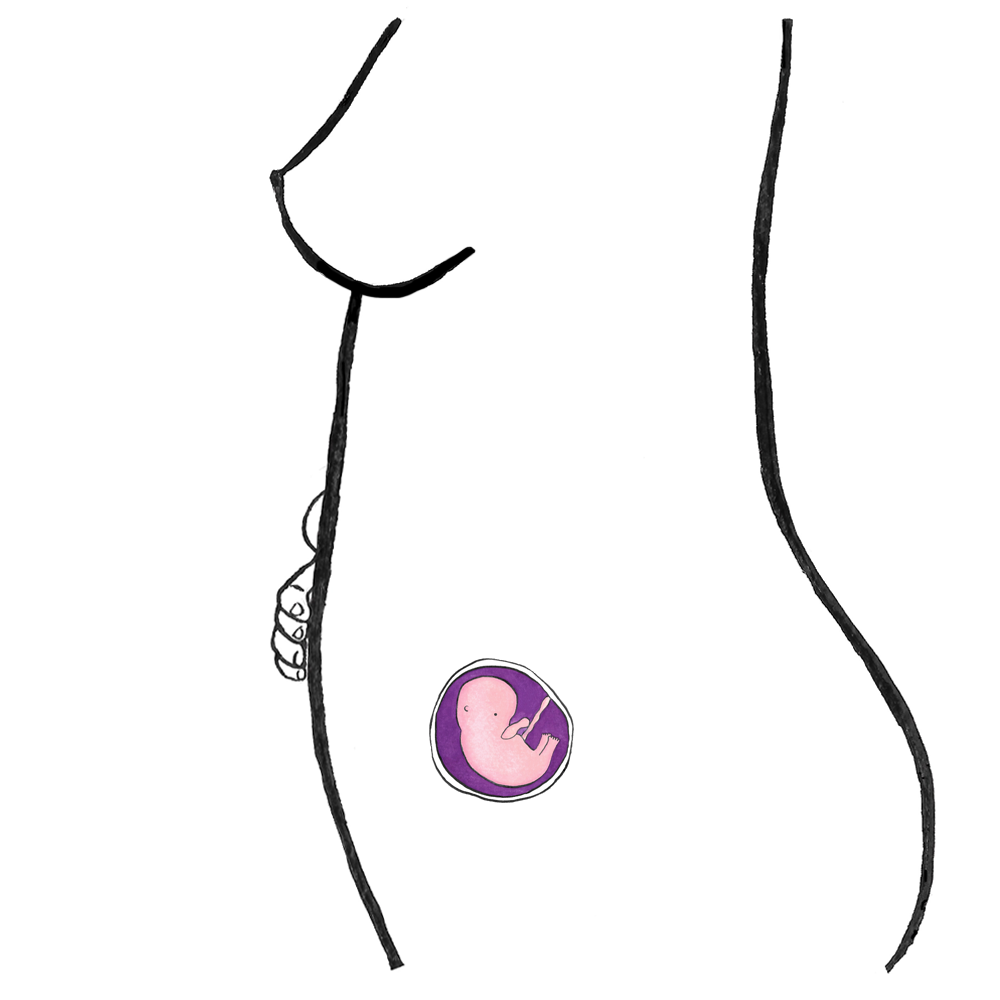12 weeks pregnant
Weekly update

Your Child can now close the tiny fingers and make a little fist. And congratulations, you may now, for a few weeks, go to the toilet less frequently than before.
Your Child’s development
About two weeks ago, Your Child started inhaling and exhaling the surrounding amniotic fluid, and now, the little one is getting better at it. By doing this, the baby is building the ability to breathe when born. Until then, the oxygen comes from the mother’s circulation through the placenta.
Reflexes develop: As the brain increases in size and complexity, Your Child’ll start developing reflexes. At the same time, the nerve endings are also forming. At this stage, if you tap your belly, Your Child can probably make some movements in response, although you might not feel it yet.
Digestive system: During this week, Your Child’s digestive system begins working by moving the intestinal muscles.
First poop: As the gastrointestinal tract starts functioning, Your Child learns how to swallow the amniotic fluid. However, this fluid is not completely clean and contains, among other things, some small pieces of tissue. Over time, this waste accumulates inside the baby’s intestines, and when the baby is born, this becomes the very first poop, a black mucoid substance called meconium.
Other compounds that Your Child swallows are transferred back into your blood circulation by passing across the placental membrane.
Moving intestines: In week 8, Your Child’s intestines grew out of Your Child’s belly and became part of the umbilical cord. This week, the intestines are growing back into the belly where they will remain forever.
Fingernails: On top of the little Your Child’s little fingers, tiny nails begin to develop.
Your Child is now weighing about 14g and has a length of 5.5 cm — the size of a lime.

Your development
When you’ve gone beyond the first trimester, your former symptoms may give way to new ones. Although you may be urinating less frequently now, it will increase again later.
Discharge: It’s possible you’ll have increased vaginal discharge, but there’s no need to worry. It is normal and helps to prevent Your Child from getting infected.
Constipation: Not all women experience constipation in pregnancy, but it’s fairly common and can make you feel uncomfortable. You may feel stomach pain or cramps. If you have stomach pain that does not go away, is severe, or is accompanied by bleeding or other symptoms, you need to see your midwife or doctor.
Heartburn: You might experience heartburn. The reason is that your stomach finds it difficult to break down spicy, fatty, and greasy foods. It’s often a result of the hormones that relax your muscles to make it easier for child delivery. Your enlarged uterus further squeezes your stomach, pushing stomach acid into the esophagus.
Additionally, you may experience these symptoms: headaches, extra saliva, flatulence, and a heightened sense of smell.
What you can do
Eat smaller meals, but eat more often and more slowly. Also, drink plenty of water. Providing your body with good food, including vegetables and fresh fruits, is the best way to fight heartburn.
Note that you need around 300 extra calories per day during pregnancy. In green vegetables, that’s about 2 small avocados or 2 whole kilograms of cucumber.
Verified:
Dr. Wanwadee Sapmee Panyakat (OB-GYN) (20 October 2021)



